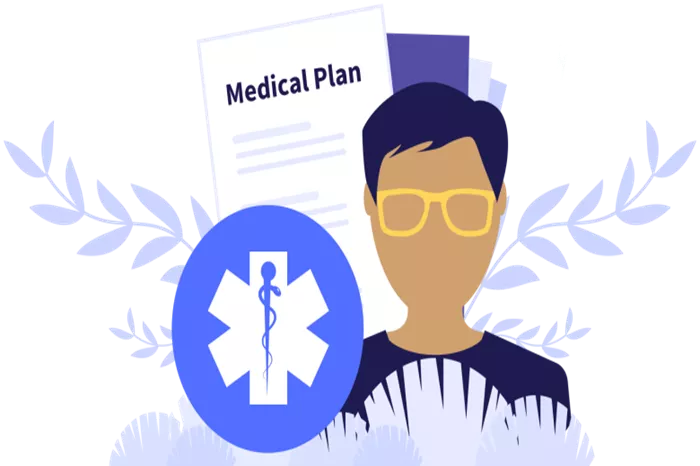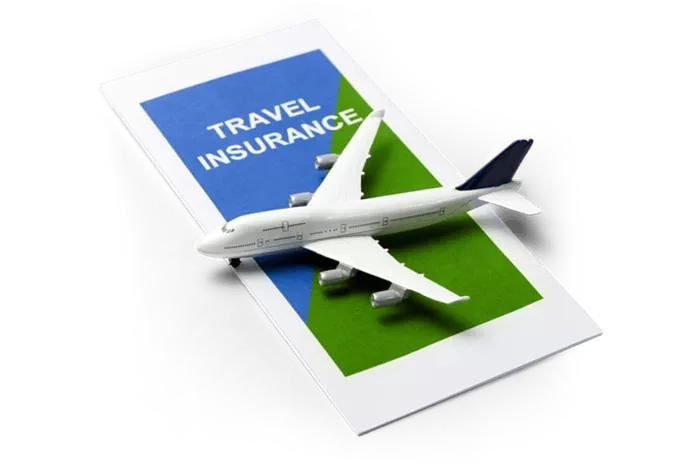When planning a trip, whether for business or pleasure, one of the critical considerations should be your health and safety while traveling. Medical emergencies can happen at any time, and being in a foreign country can complicate matters. The question arises: Does medical insurance cover travel? This article aims to provide a comprehensive understanding of how medical insurance and travel insurance work together to ensure you are covered during your travels.
Understanding Medical Insurance and Travel Insurance
Medical insurance typically covers health-related expenses incurred within your home country. This includes visits to the doctor, hospital stays, surgeries, and prescription medications. However, when traveling abroad, the scope of your medical insurance might be limited or non-existent. This is where travel insurance comes into play.
1. Travel Insurance Coverage for Medical Expenses
Travel insurance is specifically designed to cover various unforeseen events that can occur during travel, including medical emergencies.
Coverage for Medical Emergencies
Travel insurance policies usually offer coverage for medical emergencies, which can be a lifesaver in situations where immediate medical attention is required. For instance, staying outdoors with summer temperatures rising could result in heatstroke. For travelers needing medical attention overseas, their medical expenses will be covered by travel insurance with the maximum cover ranging from tens of thousands to up to HK$1 million. This means that whether you suffer from heatstroke or another medical emergency, travel insurance can provide the necessary financial support to cover your medical bills.
Injuries in Crowded Places
Travelers often get hurt in crowded places and, in addition to needing medical treatment overseas, they may also need follow-up treatment when they return to Hong Kong. In cases like this, the cost of their follow-up treatment will also be covered by travel insurance up to several tens of thousands of Hong Kong Dollars. Bonesetters’ fees can vary from several hundred Hong Kong Dollars to several thousand Hong Kong Dollars in total. This ensures that you are not only covered for the initial treatment abroad but also for any necessary ongoing treatment once you return home.
2. Hospitalization and Emergency Services
If a traveler gets seriously injured and needs to be hospitalized, their insurance company will arrange a deposit guarantee to facilitate hospital admission. This deposit guarantee is crucial as many hospitals require a significant upfront payment before admitting a patient. Their insurance company will also bear the hospitalization charges to a maximum of HK$1 million, depending on the policy. This can alleviate the financial burden of unexpected hospital bills, allowing the traveler to focus on recovery instead of worrying about costs.
3. Emergency Hotline and Documentation
If a traveler needs to be admitted to a hospital overseas, they should immediately call the emergency hotline provided by their insurance company. In addition to keeping the hotline number to hand, it is also important to have your personal information and policy numbers with you. This is vital if you are unfortunate enough to end up in a coma as your friends or medical staff can help to contact your insurance company. Quick and efficient communication with your insurance provider can ensure that you receive the necessary care promptly.
The Scope of Travel Insurance
Travel insurance policies can vary widely in terms of coverage, so it’s essential to understand what is included in your specific policy. Here are some common aspects of travel insurance coverage related to medical expenses:
1. Medical Evacuation and Repatriation
In severe cases, a medical evacuation might be necessary to transport you to a facility that can provide adequate care. Travel insurance often covers the costs associated with medical evacuation and repatriation. This means that if you need to be transported back to your home country for further treatment, your travel insurance will cover these expenses.
2. Prescription Medications
If you require prescription medications while traveling, travel insurance can cover the cost of these medications, especially if they are necessary as part of emergency treatment. This is particularly important if you lose your medications or run out during your trip.
3. Dental Emergencies
Dental emergencies can also occur while traveling, and many travel insurance policies provide coverage for emergency dental treatment. This ensures that you can receive necessary dental care without incurring significant out-of-pocket expenses.
Exclusions and Limitations
While travel insurance provides extensive coverage for medical emergencies, it is important to be aware of exclusions and limitations that might apply. Here are some common exclusions:
1. Pre-Existing Conditions
Many travel insurance policies do not cover pre-existing medical conditions. If you have a medical condition that existed before your trip, you may need to purchase a policy that specifically covers pre-existing conditions or look for an insurance provider that offers such coverage.
2. Risky Activities
If you plan to engage in high-risk activities such as extreme sports or adventure activities, check whether your travel insurance policy covers these activities. Some policies exclude coverage for injuries sustained during risky activities, so you may need to purchase additional coverage.
3. Non-Emergency Treatments
Travel insurance is primarily designed to cover emergency medical treatments. Non-emergency treatments or elective procedures are typically not covered. It’s important to differentiate between emergency and non-emergency medical needs when assessing your coverage.
See Also: Do I Need Medical Insurance For Australia
Choosing the Right Travel Insurance Policy
Selecting the right travel insurance policy is crucial to ensure comprehensive coverage for medical emergencies. Here are some tips to help you choose the best policy:
1. Assess Your Needs
Consider your health condition, the activities you plan to engage in, and the destinations you will visit. Assessing your needs will help you choose a policy that provides adequate coverage for your specific situation.
2. Compare Policies
Compare travel insurance policies from different providers to understand the coverage, exclusions, and costs. Look for policies that offer comprehensive medical coverage, including emergency evacuation and repatriation.
3. Read the Fine Print
Carefully read the terms and conditions of the travel insurance policy. Pay attention to the exclusions, limitations, and requirements for making a claim. Understanding the fine print will help you avoid surprises in the event of a medical emergency.
4. Consider Add-Ons
Some insurance providers offer add-ons that can enhance your coverage. For example, if you have a pre-existing medical condition, you might need to purchase a policy that includes coverage for pre-existing conditions. Similarly, if you plan to engage in risky activities, look for policies that offer coverage for such activities.
Making a Claim
In the unfortunate event that you need to make a claim on your travel insurance for medical expenses, follow these steps to ensure a smooth process:
1. Contact Your Insurance Provider
Immediately contact your insurance provider using the emergency hotline. Provide them with all necessary details, including your personal information, policy number, and the nature of the medical emergency.
2. Keep Documentation
Keep all documentation related to the medical treatment, including hospital bills, prescription receipts, and doctor’s reports. These documents will be necessary when making a claim.
3. Follow the Process
Follow the claims process outlined by your insurance provider. This may include submitting the necessary forms, providing additional information, and cooperating with any investigations.
4. Stay Informed
Stay informed about the status of your claim. Maintain regular communication with your insurance provider to ensure that your claim is processed promptly.
The Importance of Travel Insurance
The importance of travel insurance cannot be overstated. Medical emergencies can happen at any time, and being unprepared can lead to significant financial and emotional stress. Here are some key reasons why travel insurance is essential:
1. Financial Protection
Travel insurance provides financial protection against unexpected medical expenses. Without travel insurance, you could be responsible for paying out-of-pocket for medical treatments, which can be prohibitively expensive in some countries.
2. Peace of Mind
Having travel insurance gives you peace of mind knowing that you are covered in case of a medical emergency. This allows you to enjoy your trip without constantly worrying about potential health issues.
3. Access to Quality Care
Travel insurance ensures that you have access to quality medical care, regardless of your location. Insurance providers often have networks of hospitals and clinics that meet certain standards, ensuring that you receive appropriate care.
4. Assistance Services
Many travel insurance policies include assistance services that can help you navigate medical emergencies. These services can provide valuable support, such as arranging medical transportation, coordinating with healthcare providers, and assisting with language barriers.
Conclusion
In conclusion, while medical insurance typically covers health-related expenses within your home country, travel insurance is essential for covering medical emergencies while traveling abroad. Travel insurance provides comprehensive coverage for medical expenses, including emergency treatments, hospitalization, follow-up care, and more. It offers financial protection, peace of mind, and access to quality care, ensuring that you are well-prepared for any health issues that may arise during your travels.
Before embarking on your trip, take the time to assess your needs, compare policies, and choose the right travel insurance coverage. Understanding the scope of your coverage and being aware of exclusions and limitations will help you make informed decisions. In the event of a medical emergency, promptly contact your insurance provider, keep all necessary documentation, and follow the claims process to ensure a smooth experience.
Remember, investing in travel insurance is a small price to pay for the security and protection it offers. Whether you are traveling for business or leisure, having the right travel insurance can make all the difference in ensuring a safe and enjoyable trip.
[inline_related_posts title=”You Might Be Interested In” title_align=”left” style=”list” number=”6″ align=”none” ids=”1685,3171,3167″ by=”categories” orderby=”rand” order=”DESC” hide_thumb=”no” thumb_right=”no” views=”no” date=”yes” grid_columns=”2″ post_type=”” tax=””]






















